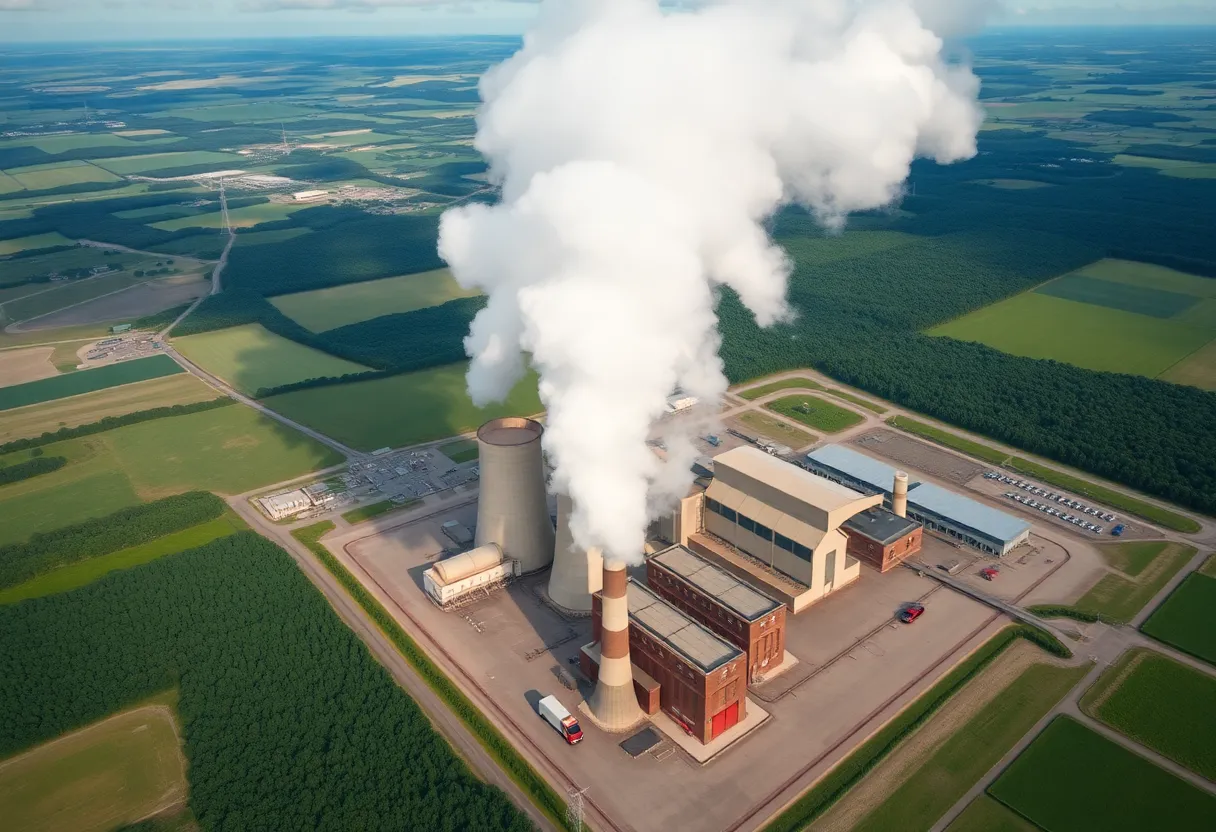News Summary
The U.S. Energy Department has mandated the continuation of the J.H. Campbell coal-fired power plant operations in Ottawa County, Michigan, until at least late August 2025. This decision comes amidst concerns about potential electricity supply shortfalls. While local officials support the extension for grid stability, environmental groups criticize the move, arguing it hinders progress towards cleaner energy. The controversy highlights the tension between federal directives and state energy priorities as the landscape for energy generation evolves.
Ottawa County, Michigan — The U.S. Energy Department has ordered the continuation of operations at the J.H. Campbell coal-fired power plant in Ottawa County, Michigan, at least until late August 2025. This directive ensures that the plant, which is part of Consumers Energy’s energy infrastructure, will not close as initially scheduled on May 31, 2025. The decision stems from concerns regarding potential electricity supply shortfalls in the central United States, as explained by Secretary of Energy Chris Wright, who stressed the importance of maintaining the region’s power generation capabilities.
The federal order, issued on May 23, is effective for a 90-day period, expiring on August 21, 2025. This timeframe has raised concerns, particularly among state regulators and environmental groups, who argue that the order is unnecessary given that Michigan currently enjoys a surplus of energy supply.
Dan Scripps, chair of the Michigan Public Service Commission, challenged the federal decision, asserting that there is no existing energy emergency affecting Michigan or the surrounding region managed by the Midcontinent Independent System Operator (MISO). MISO has projected that the electricity supply will remain sufficient throughout the summer, with risks only emerging during periods of extreme weather.
Located near Lake Michigan, the J.H. Campbell plant has the capacity to generate up to 1,450 megawatts of electricity, which is enough to power approximately 1 million people. The facility began its operations in 1962 and has since contributed significantly to the local energy supply.
Despite the federal mandate, Consumers Energy has indicated that it will abide by the order while simultaneously reviewing its long-term impact on energy plans, which include transitioning to cleaner energy sources. The company has previously shared intentions to replace the capacity lost from Campbell with cleaner and gas-powered generation options, alongside investments in renewable energy sources.
Local officials in Ottawa County have expressed their support for the decision to keep the Campbell plant operational, citing concerns over grid stability amid increasing electricity demand. However, environmental organizations, such as the Sierra Club, have criticized the intervention, labeling coal as “expensive, outdated, and deadly.” They argue that the continuation of coal operations undermines progress toward cleaner energy solutions.
This intervention also raises questions about the alignment of federal and state energy policies. Critics express worries that delaying the planned closure of coal plants like Campbell could lead to higher electricity costs for consumers in Michigan and hinder the state’s broader clean energy objectives. The trend of declining coal generation across the U.S. has been fuelled by competition from more sustainable energy sources, presenting a challenging landscape for traditional energy infrastructures.
The J.H. Campbell plant controversy highlights ongoing tensions between federal energy directives, state priorities, and the urgent need to address climate change while ensuring reliable electricity supply. As the energy landscape continues to evolve, the implications of this order may significantly influence both local policy and broader national energy strategies.
Deeper Dive: News & Info About This Topic
- Arkansas Online: US Orders Michigan Coal Plant to Remain Open
- Wikipedia: Coal Power in the United States
- Fox17: Federal Emergency Order Delays Closure of Michigan Coal Plant
- Google Search: Michigan Coal Plant Closure
- MLive: Trump Officials Order Michigan Coal Power Plant Must Stay Open
- Google Scholar: Michigan Coal Power Plants
- HNG News: Trump Administration Orders Michigan Coal Plant to Stay Open
- Encyclopedia Britannica: Coal
- Record Eagle: Trump Administration Orders Michigan Coal Plant to Stay Open
- Google News: Energy Policy Michigan
Author: STAFF HERE NOVI WRITER
The NOVI STAFF WRITER represents the experienced team at HERENovi.com, your go-to source for actionable local news and information in Novi, Oakland County, and beyond. Specializing in "news you can use," we cover essential topics like product reviews for personal and business needs, local business directories, politics, real estate trends, neighborhood insights, and state news affecting the area—with deep expertise drawn from years of dedicated reporting and strong community input, including local press releases and business updates. We deliver top reporting on high-value events such as Motor City Comic Con, Michigan State Fair, and Novi Home and Garden Show. Our coverage extends to key organizations like the Novi Chamber of Commerce and Novi Community Foundation, plus leading businesses in automotive, technology, and manufacturing that power the local economy such as Gentherm, Stoneridge, and Daifuku North America. As part of the broader HERE network, including HEREDetroitMI.com, HEREGrandRapids.com, HERENorthville.com, and HEREPlymouth.com, we provide comprehensive, credible insights into Michigan's dynamic landscape.






